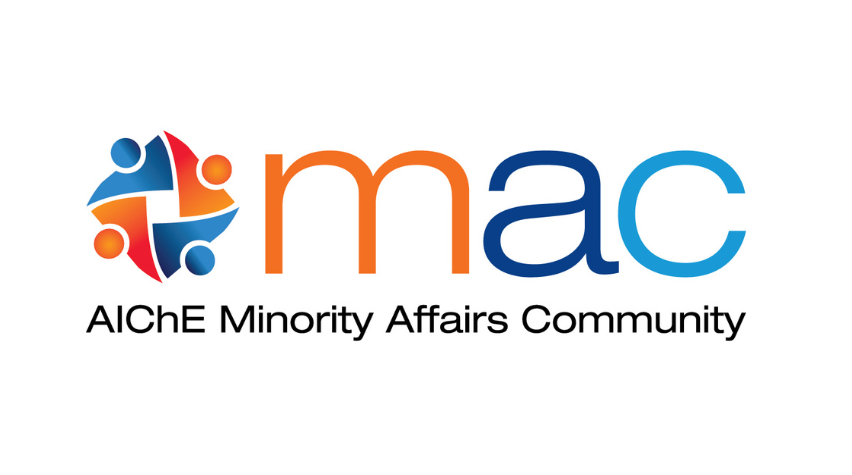
For more than 30 years, AIChE’s Minority Affairs Committee — known by many participants as MAC — has advocated for engineers who have been historically underrepresented in chemical engineering or excluded from full participation in the profession. Working to support these groups, MAC, as a standing committee of AIChE, has consisted of members who have been elected to lead strategic planning and programming efforts in this area.
While MAC has often focused on improving representation by Black engineers in chemical engineering, AIChE’s statement on the IDEAL Path — characterized by inclusion, diversity, equity, anti-racism, and learning — calls for the fullest inclusivity. With this maximally inclusive goal in mind, the Minority Affairs Committee is initiating a new community component that will ensure that all interested members feel welcome to participate, and thereby increasing the profile and power of the entire community.
How MAC’s evolution came about
The evolution of MAC’s community concept follows similar recent transformations of AIChE entities such as the Women in Chemical Engineering Community (WIC), which opened its structure from a comparatively limited committee format. These changes allow for a more expansive group and will feature larger and more easily accessible events for any AIChE members who care to participate. Such events aim not only to raise the visibility of women and other minority engineers within AIChE but also to engage and energize those members and their allies to stimulate greater involvement as leaders of the Institute and the profession over all.
Carlos Rinaldi-Ramos, Professor of Chemical Engineering at the University of Florida and Chair of the formal Minority Affairs Committee, explains that, like WIC, the reorganization of MAC as a community aims to expand MAC’s reach and better serve those who belong to racial and ethnic groups that are under-represented in the chemical engineering profession.
“I think at this stage it is important to raise awareness of MAC programs and how they benefit the community,” says Rinaldi-Ramos. “We also want to provide a forum to discuss issues that impact the MAC community, while recognizing the contributions of MAC members to the chemical engineering profession.”
Another Committee leader — Azeem Farinmade, a process engineer who earned his PhD at Tulane University — says that the reorganization of MAC as an AIChE community “is a very welcome development as it gives MAC the recognition it truly deserves within AIChE. This broader reach within AIChE will also help MAC to provide a supportive environment for professional growth to underrepresented groups and allied members.”
As a community, MAC will be able to leverage funding opportunities to provide its members with several benefits such as exclusive technical resources and programs for educational and career advancement.
Farinmade added that it is important for MAC and AIChE to keep young professionals and students engaged and connected to the organization in order to foster continuity and growth. “The upcoming generation of chemical engineers in minority groups need to be given more opportunities for leadership and volunteering within MAC and AIChE to establish a sense of belonging.”
LatinX
The inclusion of allies and affinity groups under the MAC Community’s larger tent is a key objective of this new approach. One such group is AIChE’s LatinX in ChE Subcommittee, a recently established activity group that creates a sense of connection between AIChE members of Latin American descent. In 2022, the group conducted several network events, starting with a virtual presence during AIChE’s Spring Meeting and then moving to in person at the Annual Meeting.
Gabriel Rodriguez-Rivera, the current Chair of AIChE-LatinX and a postdoctoral fellow at the University of Colorado, says “when we in the LatinX Community heard about the reorganization of MAC, we had conversations with MAC about our shared interests and we decided to join efforts under the larger tent of MAC and AIChE.”
Rodriguez-Rivera notes that the LatinX group will continue pursuing activities focused on LatinX interests, and that he looks forward to collaborating with other communities within MAC to increase synergies.
Reflecting on the MAC and LatinX communities, Rodriguez-Rivera says that a key goal is to amplify members’ voice and reduce isolation.
“These communities share some common histories, cultures, and struggles,” says Rodriguez-Rivera, “but we share the same love of chemical engineering and capabilities to contribute to society.”
He adds “When LatinX in ChE first met, I had a sense of feeling at home in AIChE. To make the larger AIChE community our home, we need to see a representation of someone like us, and create an environment where everyone feels welcome.”
In addition to the Chair of the LatinX in ChE Subcommittee, there are a number of instrumental leaders, including Vice-Chair Isabela Ramirez Velez, and Advisory Board Member Sindia Rivera-Jimenez. Learn more about LatinX in ChE leadership here. We will be developing a future article focusing specifically on LatinX in ChE and their goals.
The Minorities Affairs Community is inviting members to help the community grow by joining MAC when they renew their AIChE membership, or by logging in to their AIChE member page. Membership is complimentary for AIChE undergraduates.


